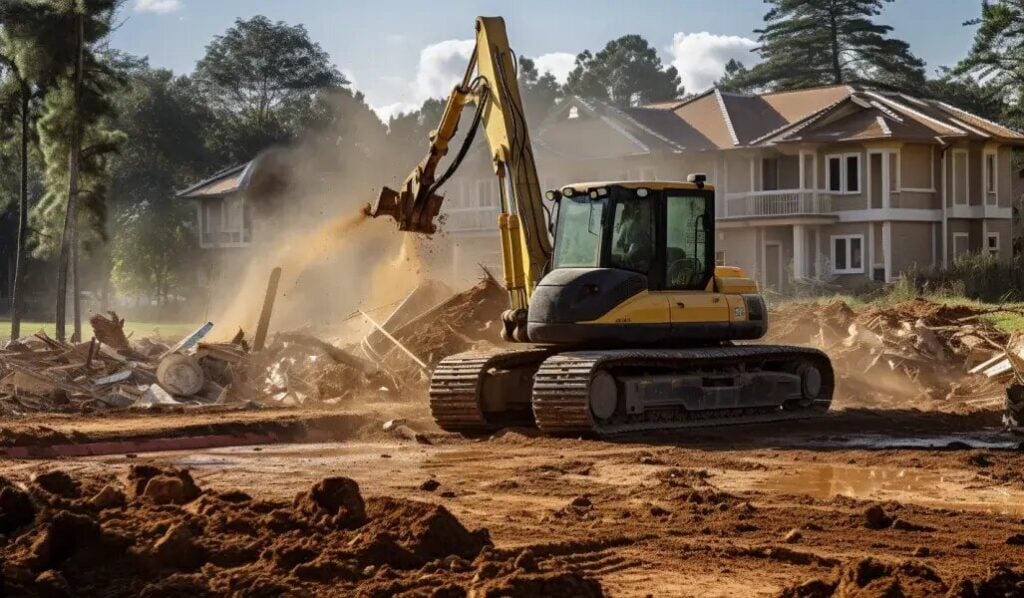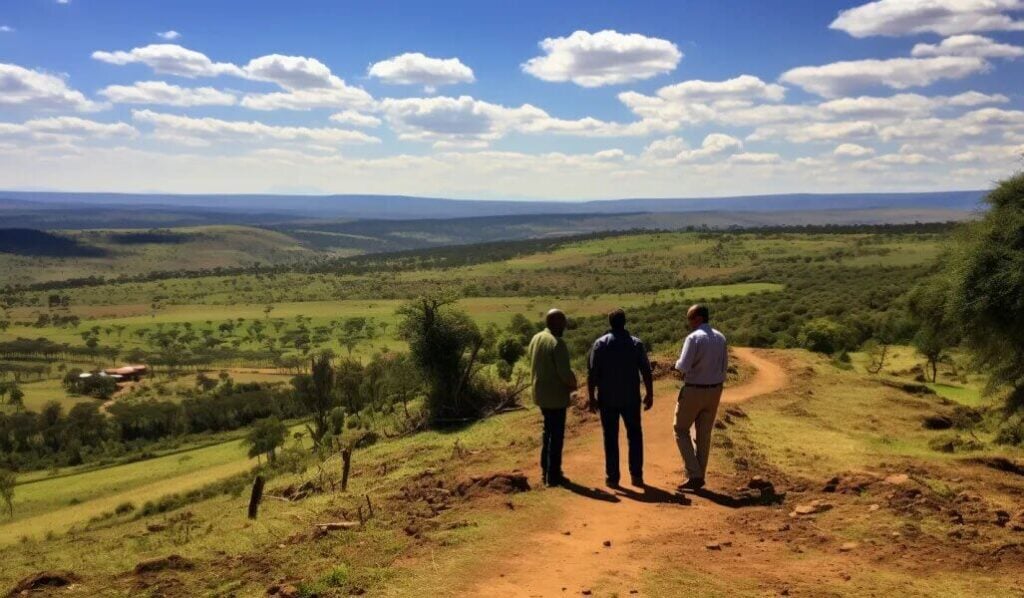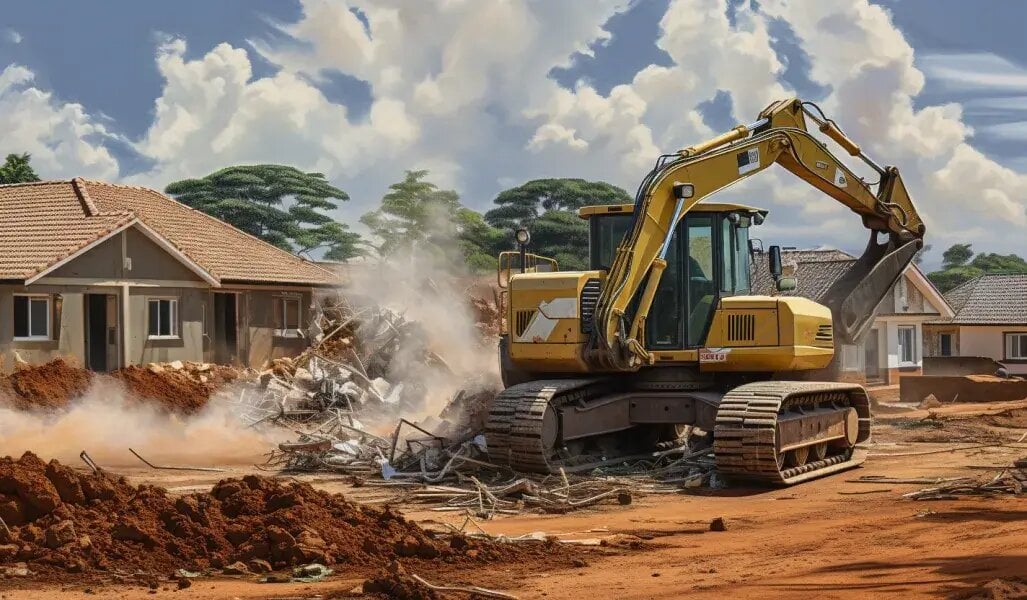- Affordable land prices and flexible payment plans are the main strategies fraudulent land sellers use to lure potential buyers.
- The Directorate of Criminal Investigations DCI Kenya set up a Land Fraud Unit to investigate land fraud cases.
- As of 2016, there were 6,000 land fraud cases, according to the Kenya National Bureau of Statistics.
Every year, thousands of Kenyans are scammed by fraudsters purporting to sell pieces of land ranging from freshly subdivided plots in agricultural areas to plots and large pieces of land in well-developed areas. According to Cesare Mbaria, the Director of Survey, property fraud costs the Kenyan economy Ksh 60 billion annually.
READ ALSO: A Beginner’s Guide and Legal Process to Buying Land In Kenya
If the recent Athi River property demolitions in 2023 are anything to go by, it is high time Kenyans became more alert when buying land to avoid losing their hard-earned money.
READ ALSO: Athi River: Top 5 Upcoming Areas in Kenya
Table of Contents
What Is the Cause of House Demolitions in Athi River?
The ongoing demolitions are a result of well-choreographed land scams in Athi River. Unbeknownst to them, prospective buyers bought land fraudulently acquired from East African Portland Cement (EAPC).
As of 2016, the fraudulent pieces of land went for as low as Ksh 50,000 per plot. Some of the rogue land sellers went as far as offering flexible payment plans to buyers. The lucrative deals attracted a lot of buyers who wanted to cash in on the attractive deals, and that is how unsuspecting buyers were reeled into the scam.

The company put caveat signs warning potential buyers from purchasing the land, but the notice was largely ignored. However, considering the size of the land under contention, it is safe to assume that some people did not know that the portion of land they were buying was part of the EAPC land.
How Can I Verify the Authenticity of a Piece of Land to Avoid Potential Scams?
Verifying the authenticity of property is a three-part process. You will need to ascertain the authenticity of the property on sale, the real owner of the property, and the authenticity of the ownership documents.
Below is a comprehensive guide that will safeguard you against property fraud;
Visit the site
Visiting the site allows you to verify that the property exists and is actually for sale. You can confirm further details regarding the land by talking to the neighbors and comparing shared photos with the actual topography on site.
Any signs of airbrushing, such as fake photos shared, should not be ignored. The layout of the land should match the photos shared. Think about it: if someone uses false images to market your property. What else are they lying about?

You should also confirm the other details the land seller shares, such as accessibility, proximity to roads, electricity and sewage connections, the neighborhood, and the land size.
Due Diligence
This entails property legality checks to verify the property’s real owner and the authenticity of the ownership documents. It is the most important fraud prevention step when buying property.
READ ALSO: Why Due Diligence is Essential in Property Transactions
Start by doing a Title deed search to verify the authenticity of the Title deed and to find out who the real owner of the land is. Then, hire a surveyor to inspect the boundaries of the land. Lastly, do a background check on the owner of the land.
READ ALSO: The Benefits of a Title Deed for Your Property in Kenya
To achieve this, do the following;
- Use KRA Itax to verify their PIN and ID card.
- For companies’ land sellers, use the Certificate of Incorporation to conduct a search at the company’s registry.
What Precautions Should Buyers Take to Avoid Getting Conned When Buying Land?
Below are some tips to reduce the risks of buying fraudulent property;
- Search for boundary disputes such as encroachment on pathways, public land, or neighbors’ land. You can hire a surveyor to conduct a property survey.
- Ensure the property has not been used as collateral for a loan or is not being claimed by auctioneers. Buying land with financial encumbrances will cause you to incur unwanted financial liabilities.
- Ask for an appraisal report if the price is too good. The sale is likely fraudulent if you are charged a pittance for property in a prime location.
READ ALSO: What is the Best Way to Finance Land in Kenya? (Sacco, Bank)
What Are the Signs That Might Indicate a Potential Property Scam?
It is still possible to get scammed despite verifying the authenticity of the land you are interested in buying. Corruption in the Ministry of Land has allowed many fraudulent land sellers to be able to change details on title deeds.
As such, you should also look for other signs of a bad deal. Below are the three signs that the sale is questionable even if everything else looks okay;
Being asked to pay cash
Paying cash prevents you from leaving a paper trail, allowing you to pursue the buyers if the sale does not go through. Always pay any property you purchase using verifiable payment methods such as direct deposits, cheques, RTGS, and M-pesa.
Additionally, pay the money directly to the seller or owner of the land, not third parties. This way, you can claim to have paid the rightful owner. Payment to third parties can be disputed in the event of an issue.
Not being given a Sale Agreement
All land sales should have a written sale agreement signed by all the parties involved in the transaction. The contract should have the following details;
- Date of the transaction
- Terms and conditions of the sale
- Encumbrances
- Buying price
- Deposit paid
- Size of the land
The agreement should be signed in the presence of a neutral witness. In this case, your best option is a commissioner of oath or a notary public. The sale agreement becomes valid once the Ministry of Land seals it using the stamp duty seal/stamp.
Delayed Transfer of Ownership Documents
This is a telltale sign that the seller is not the rightful owner of the land. It may also be because they are selling the land to a different buyer. If the transfer of ownership documents is delayed, investigate the reason and act promptly to resolve the issue.



